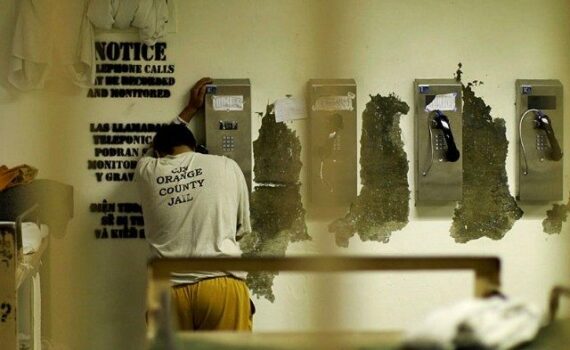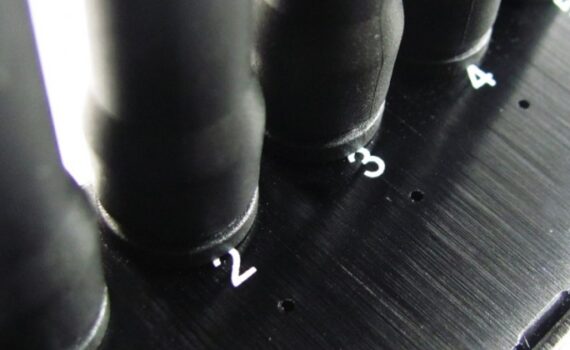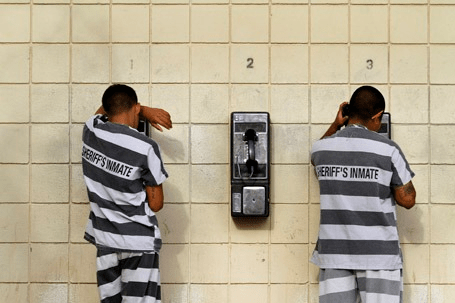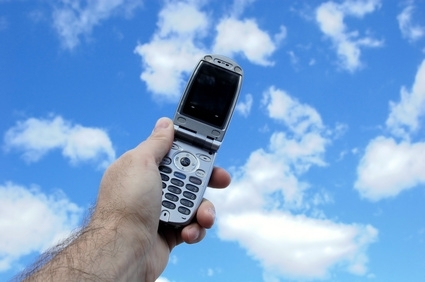Consolidation within the prison payphone communications industry, also known as inmate communications services (ICS), continues with Global Tel*Link (GTL) asking the FCC for approval to buy (some? all?) of the assets of Legacy/Edovo. GTL is the largest provider of ICS in the US. Legacy Inmate Communications is a wholly owned subsidiary of Jail Education Solutions, Inc. d/b/a Edovo (“Edovo”). From the FCC filling, “On July 2, 2020, GTL, Legacy, and Edovo entered into a Master […]
FCC
T-Mobile recently submitted to the FCC a study comparing Managed Access Systems (“MAS”) and precision jamming systems (micro-jamming) as potential solutions to prevent contraband phone use in correctional facilities. This study was submitted to Docket 13-111, Promoting Technological Solutions to Combat Contraband Wireless Device Use in Correctional Facilities. The study provides an overview of MAS and micro-jamming solutions examining both technical and cost considerations. The paper finds that the cost to deploy and operate the […]
Recently meshIP, LLC submitted comments to the FCC’s Docket No. 13-111, Promoting Technological Solutions to Combat Contraband Wireless Device Use in Correctional Facilities. We are re-posting those comments here: Introduction meshIP, LLC (“meshIP” or “Company”) respectfully submits these comments in response to the Federal Communications Commission’s (“FCC” or “Commission”) Report & Order and Further Notice of Proposed Rulemaking (“FNPRM”) in the above- captioned proceeding. meshIP is the provider of meshDETECT© Secure Prison Cell Phone Solutions™. meshDETECT© […]
The FCC has frequently advocated for competition in the provision and availability of inmate communications services (ICS) in prisons and jails. In its Second Report And Order And Third Further Notice Of Proposed Rulemaking (NPRM) adopted on 10/22/15, it wrote, “While we adopt regulations in this Order to correct failures in the ICS market, the Commission generally prefers to rely on competition over regulation. We seek additional comment on whether there are ways to promote […]
An interesting article in light of the recent letter submitted to the FCC by ten Republican governors who want the Federal Communications Commission to give states more autonomy to apply technology that can stop prison inmates from using smuggled cellphones. Gov. Nikki Haley and her counterparts encouraged FCC Chairman Thomas Wheeler in a letter Monday to give them “flexibility and authority” to render such communication impossible. While the letter doesn’t explicitly say so, what the […]
On March 7, 2016, the United States Court of Appeals for the District of Columbia Circuit (D.C. Circuit) stayed two provisions of the FCC’s ICS rules: 47 CFR § 64.6010 (setting caps on ICS calling rates that vary based on the size and type of facility being served) and 47 CFR § 64.6020(b)(2) (setting caps for single-call services). The D.C. Circuit’s March 7 Order denied motions for stay of the FCC’s ICS rules “in all […]
UPDATE (10/22/15): The order passed at the FCC by a vote of 3 to 2. Securus and Global Tel*Link immediately issued statements indicating they would seek a stay of the order and appeal to the United States Court of Appeals, D.C. Circuit, to get the entire decision overturned. Original Post: After a year of seeking comments on its Further Notice of Proposed Ruling Making focused on inmate phone call rates and fees, the FCC has released […]
The National Sheriffs’ Association (NSA), in a recent FCC filing for Docket No. 12-375 (Inmate Calling Services), made the case that jails should be compensated for the costs they incur to allow inmate calling service (ICS). The FCC, in its Second Further Notice of Proposed Rulemaking (SFNPRM), proposed the elimination of the payment of site commissions as a category to correctional facilities, including jails. On January 12, 2015, NSA’s submitted a cost survey to the […]
The first round of comments on the FCC’s Second Notice of Proposed Rulemaking regarding the reduction of the cost of all inmate calls are in. Here is one of the more interesting insights we have gleaned from those submissions: The Prison Policy Initiative’s submission on advanced inmate communications services in prison discusses the very real need that these new services (such as the meshDETECT Secure Prison Cell Phone Solution) address: These Services Address a Real […]
The inmate communication services industry is being fundamentally reshaped by the FCC. Potentially more significant than its predecessor initiative, which significantly reduced prison payphone long-distance rates, the recently issued Further Notice of Proposed Rulemaking seeks comment on key drivers of revenue and profit for these prison payphone providers and the prisons themselves. With the two largest providers of payphone services owned by private equity firms, not usually known for embracing a shrinking profit model, it […]
Today I participated in the FCC’s Workshop on Inmate Calling Services Reform on the New Technologies panel to consider new and emerging forms of communications in correctional settings beyond the traditional wireline telephone call. Below is the text of my opening statement: As this workshop is focused on inmate calling services and this panel is specifically targeted to new technologies, I would like to focus my opening comments on a new solution to the problem […]
The FCC has released its order (FCC 13-113) detailing the rules associated with the regulating of prison payphone interstate calling rates. This is the culmination of FCC Proposed Rule Making 12-375 (The Wright Petition – follow the link for to see the new proposed rates) in which the Federal Communications Commission proposed to lower rates charged to prison inmates for long distance telephone calls by considering changes to its regulations governing rates for interstate inter-exchange […]
Update: We have submitted our thoughts on this complex issue to the FCC. You can read them here and download the actual filing here. The FCC today issued FCC 13-58, Contraband Wireless Device Notice of Proposed Rulemaking (NPRM), to “remove barriers to the deployment and viability of existing and future technologies used to combat contraband wireless devices.” The NPRM discusses current technologies such as managed access, detection, jamming and wireless carrier service termination of identified […]
The first round of comments are in for the FCC Proposed Rule Making 12-375 (The Wright Petition), and advocates from both sides of the issue have submitted letters and comments on the price of interstate calls from prison. Some cash-strapped states and facilities collect commissions from prison phone contracts. Texas, for instance, uses some of the money collected for a crime victims’ fund. Nationwide, states collect more than $150 million a year from prison phone […]
Update (8/9/13): Today the FCC, led by interim Chairwoman Mignon Clyburn, voted to limit how much companies can charge for phone calls from behind bars. A decade after families of prison inmates asked for action, the Federal Communications Commission voted on a proposal to cap interstate phone rates at 21 cents a minute for debit or prepaid calls and 25 cents a minute for collect calls. Companies wanting to set higher rates would have to […]
This edition of “Wireless Prison Payphone™ Briefs” focuses on the recent decision by the FCC to take up the ten year old Wright petition addressing the high cost of interstate prison payphone calls. The articles excerpted below provide an in depth look at the issue. The First Call Is Free; the Rest Are a Fortune: Paying a $4.25 connection fee and then 75 cents per minute thereafter seems costly, unless, perhaps, we’re talking about a […]
On March 1, 2012 the FCC issued a public notice seeking comments “on concerns and issues related to intentional interruptions of Commercial Mobile Radio Service (CMRS or “wireless service”) by government authorities for the purpose of ensuring public safety.” (GN Docket No. 12-52) As the notice states, “While the important function that wireless service plays in protecting public safety is undisputed, some commentators, including some law enforcement personnel, have raised concerns that wireless networks can […]
This article discusses the problems of trying to jam contraband cell phones in prison. Besides the significant cost, there are technical issues and regulatory concerns to overcome. We suggest that prisons co-opt the prison cell phone problem by supplying secure cell phones. This will eliminate the value of contraband cell phones and increase revenue through commissions rather than add unaffordable prison cell phone jammer expense. It’s not an insignificant problem. Mobile phones make their way […]
An interesting overview of the problems smuggled cell phones in prison create in jails throughout the United States. As usual however, the discussion of possible solutions focuses on reducing supply and signal jamming, but offers no consideration of a strategy reducing the DEMAND for contraband cell phones. By co-opting prisoners’ legitimate desire for more frequent and easier telephone access to family, prisons can reduce the overall demand for contraband cell phones and reduce the incentive […]



















